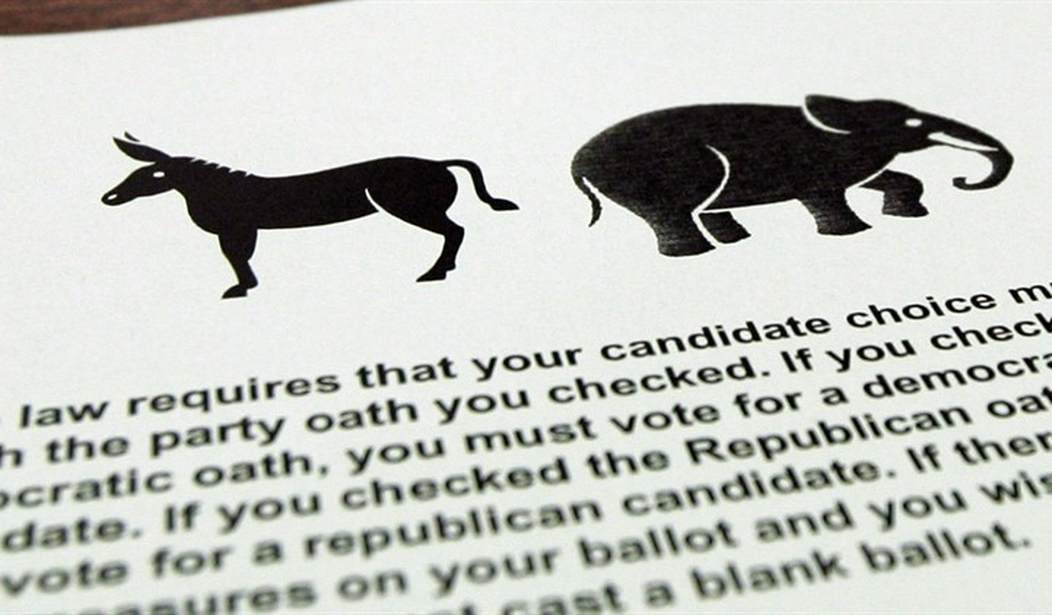On November 8th, Republicans took back the White House and maintained their hold on Congress, meaning we will once again have a united government. A single party hasn't controlled both the executive and legislative branches since 2011. In fact, our government has only been united 17 times in history—excluding the recent election. Here is every instance in which a single party has held the Presidency and Congress, and the most significant—and often most controversial—pieces of legislation passed during that time.
1857-1859 | Dominant Party: Democratic | 2 years
President: James Buchanan (1857-1861)
35th Congress (1857-1859)
1861-1863 | Dominant Party: Republican | 2 years
President: Abraham Lincoln (1861-1865)
37th Congress (1861-1863)
Homestead Act (1862): Encouraged Western migration by awarding settlers 160 acres of land after 5 years of residence
Pacific Railroad Acts (1862): A series of acts that promoted the creation of the transcontinental railroad
1869-1875 | Dominant Party: Republican | 6 years
President: Ulysses S. Grant (1869-1877)
41st Congress (1869-1871), 42nd Congress (1871-1873), 43rd Congress (1873-1875)
1881-1883 | Dominant Party: Republican | 2 years
President: James A. Garfield (1881), Chester A. Arthur (1881-1885)
47th Congress (1881-1883)
Chinese Exclusion Act (1882): Considered one of the most significant restrictions on immigration in U.S. history, it prohibited all Chinese immigration to the U.S. for ten years.
1889-1891 | Dominant Party: Republican | 2 years
President: Benjamin Harrison (1889-1993)
51st Congress (1889-1991)
Sherman Antitrust Act (1890): The first anti-monopoly federal act that prohibited the formation of trusts.
1893-1895 | Dominant Party: Democratic | 2 years
President: Grover Cleveland (1993-1997)
Recommended
53rd Congress (1893-1895)
1897-1911 | Dominant Party: Republican | 14 years
President: William McKinley (1897-1901)
55th Congress (1897-1899), 56th Congress (1899-1991)
President: Theodore Roosevelt (1901-1909)
57th Congress (1901-1903), 58th Congress (1903-1905), 59th Congress (1905-1907), 60th Congress (1907-1909)
President: William Howard Taft (1909-1913)
61st Congress (1909-1911)
Federal Meat Inspection Act (1906): Established standards for the meat industry; meat processing facilities were inspected to ensure that meat products were slaughtered and processed under proper, sanitary conditions.
1913-1917 | Dominant Party: Democratic | 2 years
President: Woodrow Wilson (1913-1921)
63rd Congress (1913-1915), 64th Congress (1915-1917)
Federal Reserve Act (1913): Created the Federal Reserve System, also known as our central banking system. Also established the government’s power to issue currency.
1921-1931 | Dominant Party: Republican | 10 years
President: Warren G. Harding (1921-1923)
67th Congress (1921-1923)
President: Calvin Coolidge (1923-1929)
68th Congress (1923-1925), 69th Congress (1925-1927), 70th Congress (1927-1929)
President: Herbert Hoover (1929-1933)
71st Congress (1929-1931)
Tariff Act (1930): Raised tariffs on over 20,000 imports to protect American businesses.
1933-1947 | Dominant Party: Democratic | 12 years
President: Franklin D. Roosevelt (1933-1945)
73rd Congress (1933-1935), 74th Congress (1935-1937) , 75th Congress (1937-1939), 76th Congress (1939-1941), 77th Congress (1941-1943), 78th Congress (1943-1945)
The New Deal (1933-1938): A series of programs enacted during the Great Depression intended to provide jobs and stabilize the economy; included the Social Security Act of 1935 and the Securities Exchange Act of 1934.
President: Harry S. Truman (1945-1953)
79th Congress (1945-1947)
1949-1953 | Dominant Party: Democratic | 4 years
President: Harry S. Truman (1945-1953)
81st Congress (1949-1951), 82nd Congress (1951-1953)
1953-1955 | Dominant Party: Republican | 2 years
President: Dwight D. Eisenhower (1953-1961)
83rd Congress (1953-1955)
1961-1969 | Dominant Party: Democratic | 8 years
President: John F. Kennedy (1961-1963)
87th Congress (1961-1963)
President: Lyndon B. Johnson (1963-1969)
88th Congress (1963-1965), 89th Congress (1965-1967), 90th Congress (1967-1969)
Civil Rights Act (1964): Ended segregation in all public places and outlawed discrimination on the basis of race, color, religion, sex or national origin.
Voting Rights Act (1965): Prohibits racial discrimination from voting laws.
1977-1981 | Dominant Party: Democratic | 4 years
President: Jimmy Carter (1977-1981)
95th Congress (1977-1979), 96th (1979-1981)
1993-1995 | Dominant Party: Democratic | 2 years
President: Bill Clinton (1993-2001)
103rd Congress (1993-1995)
2003-2007 | Dominant Party: Republican | 4 years
President: George W. Bush
108th Congress (2003-2005), 109th Congress (2005-2007)
2009-2011 | Dominant Party: Democratic | 2 years
President: Barack Obama (2009-2017)
111th Congress (2009-2011)
Patient Protection and Affordable Care Act (2010): Aimed to provide Americans with quality, affordable health insurance.

























Join the conversation as a VIP Member